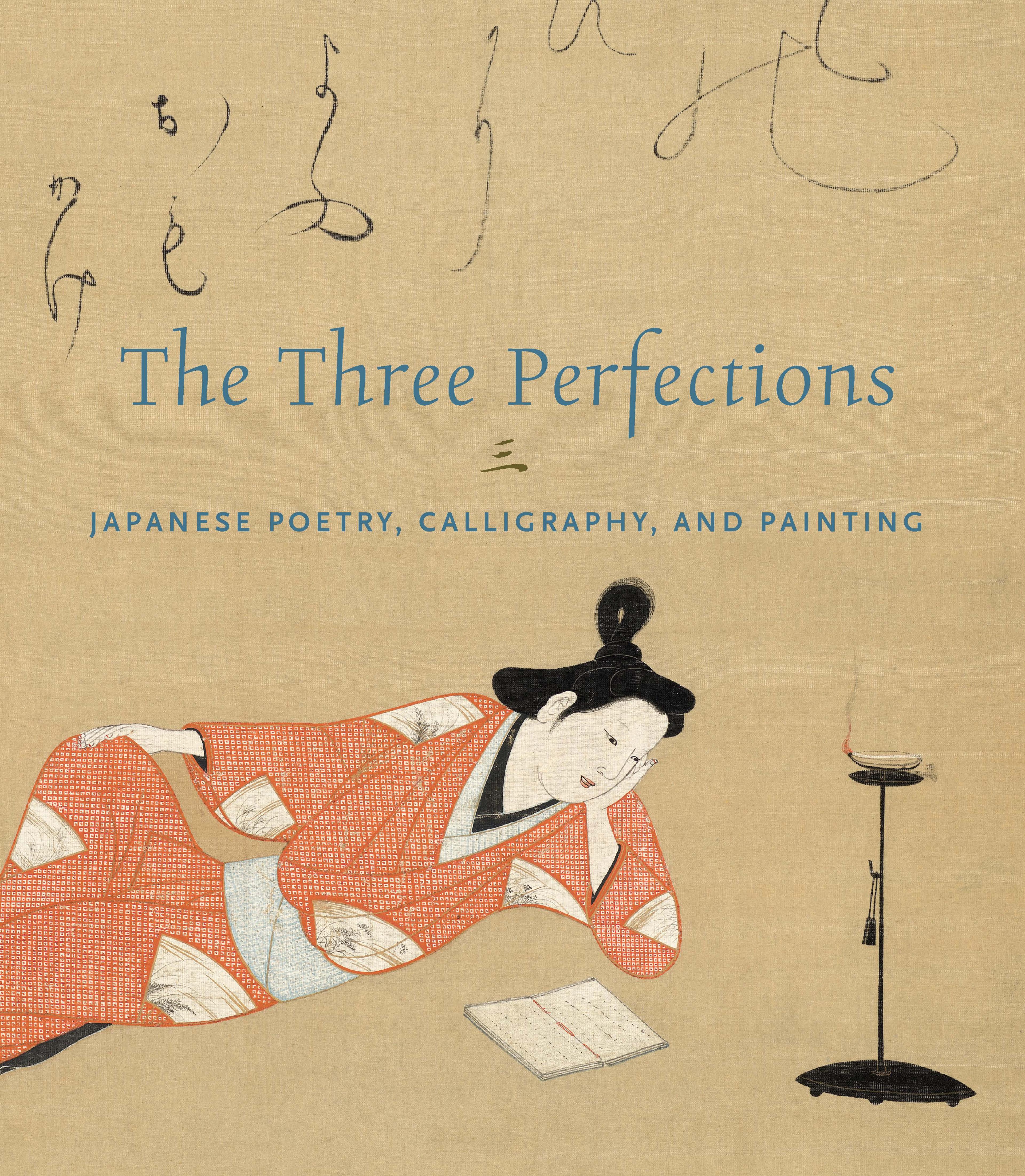Excerpt from Bai Juyi's "Autobiography of a Master of Drunken Poetry Recitation"
The highly skilled courtier-calligrapher Fujiwara no Yukinari earned a reputation as the consolidator of wayō (Japanese-style) calligraphy. The poet Bai Juyi’s collected works had a greater influence on Murasaki’s tale than any other Chinese work. The lines from Bai’s autobiographical statement read:
Therefore, he called himself the “Master of Drunken Poetry Recitation.” Now in the third year of the Kaicheng reign era [838], he has reached the age of sixty-seven. Though his beard has turned white, his head is half bald, and his teeth are falling out, his enjoyment of wine and poetry has not diminished. Turning to his wife, he said, “Before now I have always been at ease, but from now on, I do not know if I can enjoy these pleasures in the same way.”
—Translation by John T. Carpenter
Therefore, he called himself the “Master of Drunken Poetry Recitation.” Now in the third year of the Kaicheng reign era [838], he has reached the age of sixty-seven. Though his beard has turned white, his head is half bald, and his teeth are falling out, his enjoyment of wine and poetry has not diminished. Turning to his wife, he said, “Before now I have always been at ease, but from now on, I do not know if I can enjoy these pleasures in the same way.”
—Translation by John T. Carpenter
Artwork Details
- 藤原 行成書 白居易作 「醉吟先生傳」断簡
- Title: Excerpt from Bai Juyi's "Autobiography of a Master of Drunken Poetry Recitation"
- Artist: Fujiwara no Yukinari (Kōzei) (Japanese, 972–1027)
- Period: Heian period (794–1185)
- Date: early 11th century
- Culture: Japan
- Medium: Handscroll section mounted as a hanging scroll; ink on paper
- Dimensions: Image: 10 13/16 × 3 3/8 in. (27.5 × 8.6 cm)
Overall with mounting: 53 1/8 × 11 1/16 in. (134.9 × 28.1 cm)
Overall with knobs: 53 1/8 × 12 7/8 in. (134.9 × 32.7 cm) - Classification: Calligraphy
- Credit Line: Gift of Raymond and Priscilla Vickers, 2016
- Object Number: 2016.745
- Curatorial Department: Asian Art
More Artwork
Research Resources
The Met provides unparalleled resources for research and welcomes an international community of students and scholars. The Met's Open Access API is where creators and researchers can connect to the The Met collection. Open Access data and public domain images are available for unrestricted commercial and noncommercial use without permission or fee.
To request images under copyright and other restrictions, please use this Image Request form.
Feedback
We continue to research and examine historical and cultural context for objects in The Met collection. If you have comments or questions about this object record, please contact us using the form below. The Museum looks forward to receiving your comments.
